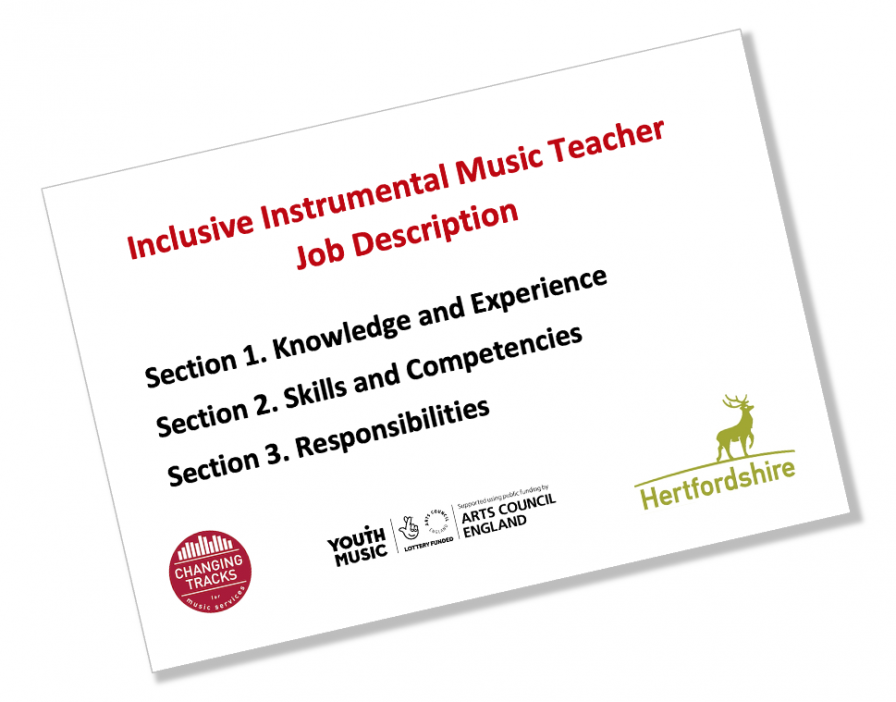Inclusive instrumental music tutor job description

This inclusive instrumental music tutor job description document was co-created by 11 music service representatives from across England in May/June 2021, in response as part of a ‘Task and Finish’ group within the Changing Tracks music services inclusion programme.
It is intended to be a helpful resource that can be used and adapted by other music services.
About the process
The process began with the HMS EDI working group revising our instrumental tutor job description, as part of a review of recruitment process. In March 2021, the National Music Services Working Group on Inclusion workshopped a new job description to support recruiting inclusive instrumental teachers, rather than a specialist ‘inclusion tutor’.
We then invited participation from colleagues nationally, with the intention of publishing a draft inclusive instrumental job description, as part of a suite of inclusive recruitment resources that we are developing on this website.
The process of creating this document gave us a chance to reflect on our own organisations’ different approaches to recruitment, the sort of instrumental teachers we want to attract, and why. We’ve edited our various contributions down to one document but are conscious some was left out, and that there will be more to add.
We see this as an ‘open’ document rather than a definitive version, which colleagues may adapt for their own service, and/or make suggestions for improvements to us (email HMSInclusion@hertfordshire.gov.uk).
Next steps
Beyond the job description, we also began talking about how diversifying recruitment raises wider questions about workforce development that we can develop through our EDI action planning. For instance, how and where we advertise, how we shortlist for and score interviews, how induction and CPD can develop people who have clear potential but little experience.
Most importantly, we spoke about the ‘chicken and egg nature’ of having tutors who can work on targeted inclusion projects, and resourcing sufficient work to retain them.
With thanks to HMS EDI group, Changing Tracks NWGI, and the colleagues from Surrey Music Service, Dorset Music Service, Merton Music Foundation, Waltham Forest Music Service, Lambeth Music Service, Southampton Music Service, Solihull Music Service, Northumberland Music Service, Services for Education-Birmingham who formed the Task and Finish group.
Further resources
Lewisham Music Service have shared their music tutor job description, developed with the help of ours.
This guide to Positive Action Recruitment from UK government outlines the difference between positive action and positive discrimination and what is/isn’t allowed.
Youth Music have shared with us that they’ve done a number of things to make their recruitment pack accessible and to attract candidates from diverse backgrounds or who are underrepresented in our team. You can see an example inclusive recruitment pack here. This includes:
Use of clear and simple language
Inclusion of photo on the first page to give a sense of the work / the type of person who might work at Youth Music
Use of in-built functions in Word to support accessibility (e.g. headings to help people using screen-readers, alt-text on images, using the ‘check accessibility’ function before publishing)
Flexible essential ‘experience’ requirements – with no requirements for formal qualifications
Guaranteed interview for Disabled candidates who meet the minimum criteria for the post
Option for part-time to attract candidates who may not be able to do full-time hours
The UK Theatre & Society of London Theatres have created this Inclusive recruitment guide – UK Theatre & Society of London Theatre
Find more resources from the Changing Tracks programme on the Hertfordshire Music Service website.

